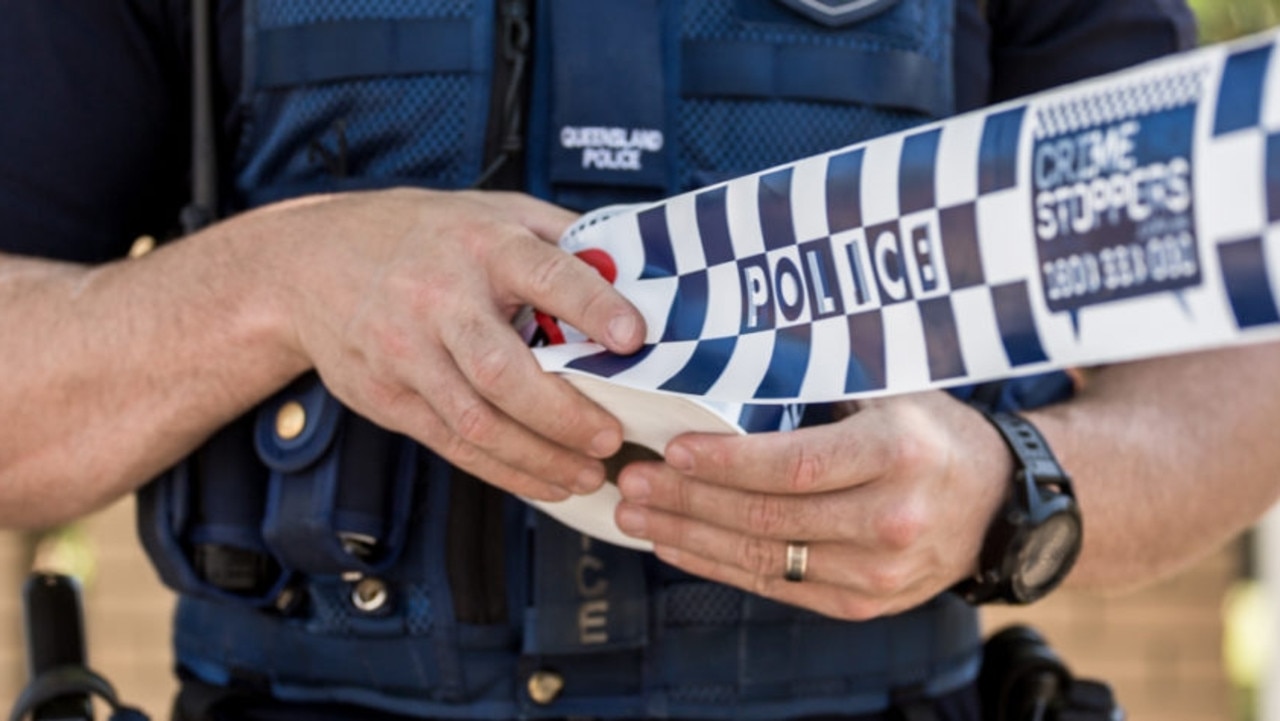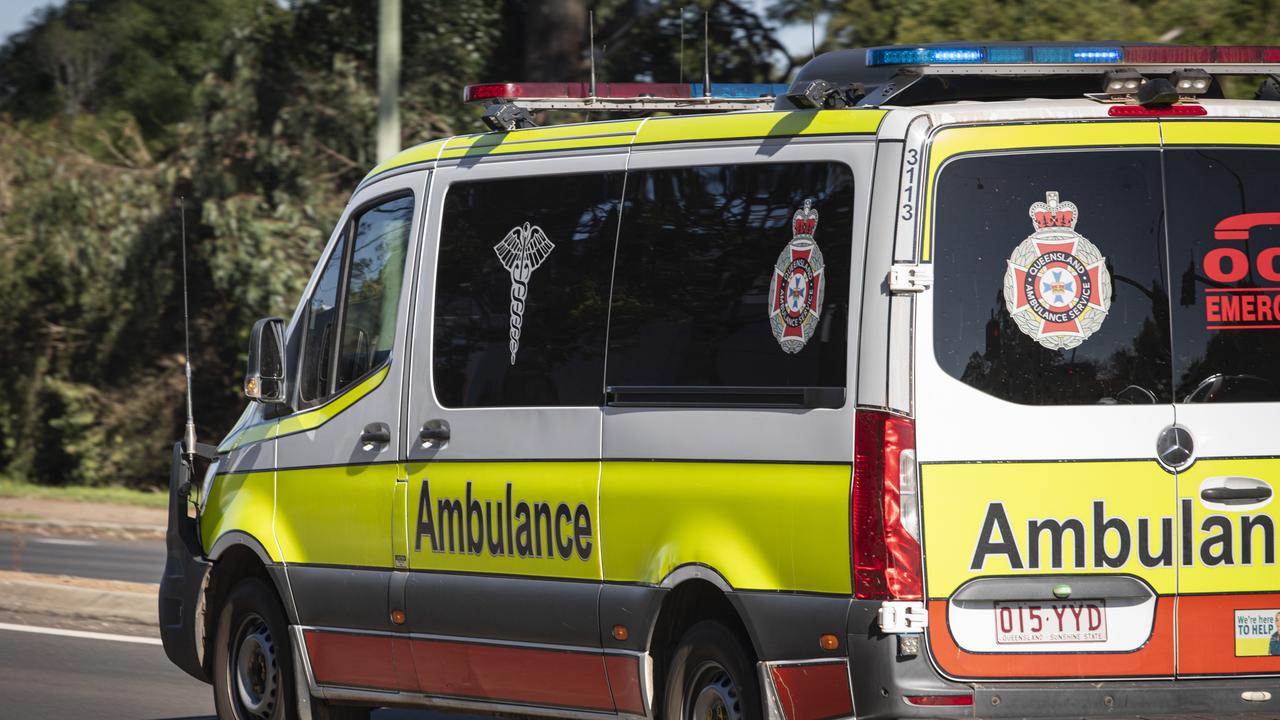High Steaks: Natalie Cook reveals why she had to miss Cathy Freeman’s golden Sydney 2000 moment
She had two tickets to witness one of the biggest moments in Australian sporting history – Cathy Freeman’s golden run at the Sydney Olympics – but Nat Cook didn’t get to go. Not that she’s at all disappointed, and here’s why.
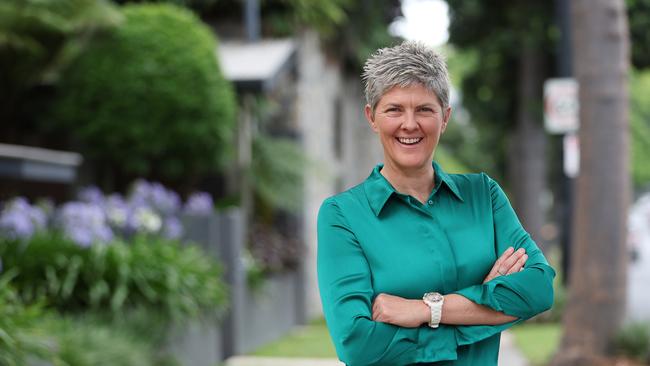
QLD News
Don't miss out on the headlines from QLD News. Followed categories will be added to My News.
Natalie Cook’s high-energy life is a series of numbers: One point, six months, -$300,000 and 480 Yatala Pies.
We’re at the Regatta’s classy Boat Shed restaurant on the eve of Christmas and this high-energy Olympic beach volleyballer with trademark gold spiky hair and grin to match bounds in late after finding a car park.
She’s best known for that one point on Bondi Beach 24 years ago.
Cook easily recalls the pressure of the gold medal match and softness of the sand her and Kerri Pottharst collapsed into after defeating the Brazilians.
It was the same day Cathy Freeman was slated to run the 400m – and Cook happened to have two tickets to it.
However, jubilation at winning gold and a desire to celebrate with supporters trumped attending that history-making race.
On the way to drug testing Cook, with the gold won moments earlier sitting heavy around her neck, approached a “random at a bus stop” and handed him two tickets to Freeman’s event.
Her next chapter lasted six months, every day was like a ticker-tape parade for the then-25-year-old.
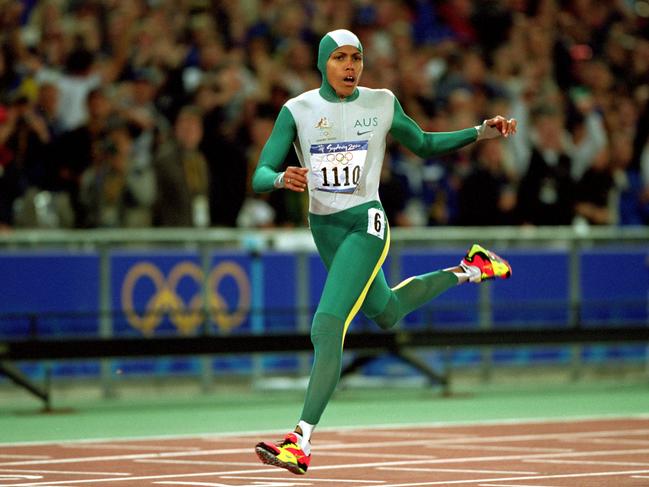
“You could show the medal and get a free taxi ride and get a free steak … and then all of a sudden that stopped,” she said.
“I feel like I was a professional beggar.”
Cook struggled financially through to Athens, where she finished fourth.
She would not reach the high of Sydney again, with a fifth place in Beijing and a disappointing campaign in London 2012 – her final Games.
Candidly, Cook reveals she probably shouldn’t have gone to London and only chose to after being inspired by the Australians entering the opening ceremony of the 2010 Vancouver Winter Olympics
“Some athletes hang on longer because they don’t know anything else, or they’re afraid of what’s next,” she said.
“I probably stayed one Olympics past my due date.”
Her goosebumps in Vancouver were quickly replaced with a blunt realisation she’d need to get back into training.
“Then the pain of coming back was like, what am I doing?
“I show up to things, I commit to my word and I said I’d do this – I’m gonna go to the end.”
Cook and Tamsin Barnett – despite living apart and Barnett travelling with a child – qualified for London but didn’t win a match to make it out of the pool.
They’d bookend their Olympic careers with an equal-19th place.
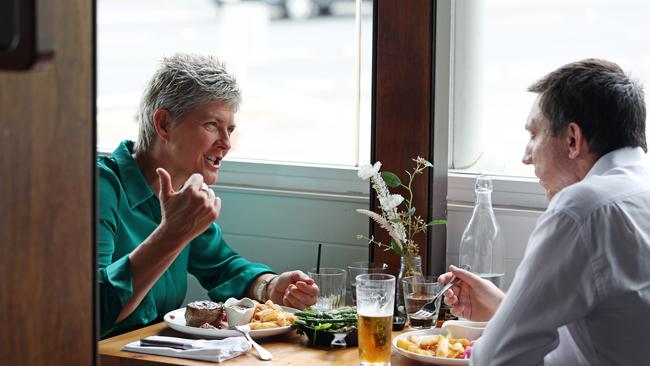
Cook’s desire to get the best coaches, leave nothing on the table and finish her career “in style” led to mounting debt.
She finished her sporting career $300,000 in debt, mortgaged against her dad’s home and no superannuation.
It’s something Cook hopes no other Australian athlete will experience, so she conceived the Aussie Athlete Fund in 2021.
“Our athletes aren’t being rewarded, none of them have superannuation, none of them have a career, none of them have a future,” Cook said.
“Part of what the fund’s about is connecting, teaching them how to raise money, teaching them to ask for money, teaching them it’s okay to get a no … that’ll set them up for resilience.”
One of the first tests Cook sets is getting an aspiring athlete to acquire a free box of mangoes from the local fruit store.
“In order to do that, you need to have a story, you need to have a dream, you need to explain to the owner why they should help you,” she said.
“They can get rejected and if they say no there’s another fruit shop 100 meters up the road.”
It’s a path well worn by Australia’s first five-time female Olympian.
To fund a trip to Tasmania in her early days a young Cook turned to a Queensland icon.
“I sold something like 480 Yatala Pies which you needed to do to make the $1000 and I sort of then started to understand what was required,” she said.
“It saved me. It wasn’t easy.
“Ever since that day, I feel like I’ve been fundraising.”
Cook’s drive is simple: Our athletes are fighting to be the world’s best and shouldn’t quit because of a cash shortage.
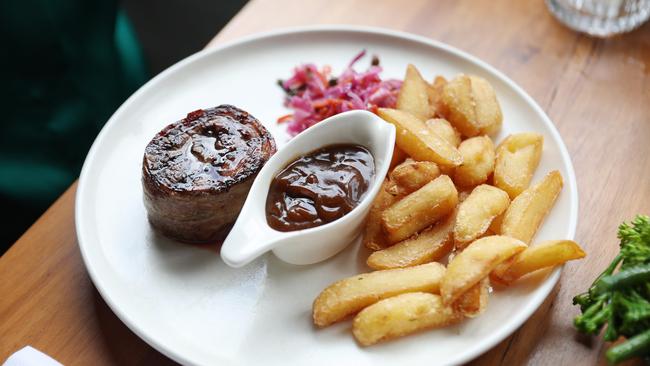
“I never want an Aussie athlete to say – Gout Gout for example – I was pretty good, but I didn’t have enough money so I had to stop,” she said.
Cook almost threw in the towel at 15 because her parents couldn’t afford the $1000 to go to Tasmania representing Queensland.
She cuts through the steak a little more intensely as we talk about the legacy of Sydney 2000 and her hard post-Games fight to build a career and remain relevant
Nostalgic Australians easily recall Freeman in the 400m or Thorpy and the fellas smashing the Americans in the pool.
For Cook, being left out of this nostalgic hall of fame can hurt as she aims to make a living in corporate speaking and ambassadorships.
“It has, it does – it hurts at different times,” she said.
“I feel like they don’t work as hard in this space.
“I was in an athlete stable with Lisa Curry and Leisel Jones and they tend to be an easier sell because there’s a sport that’s bigger, there’s more profile.
“They’re the first three things that come off people: Susie O’Neill, Ian Thorpe, Cathy Freeman.
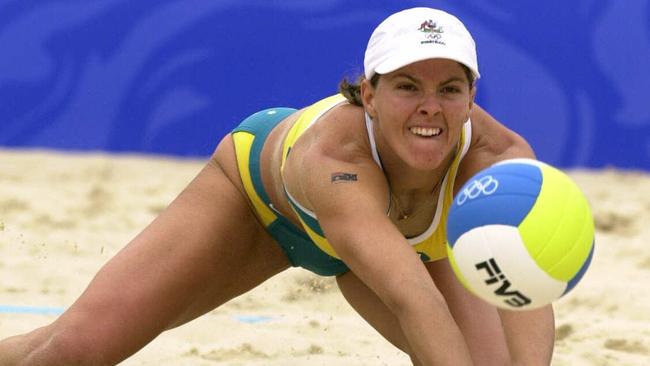
“They’re getting the big dollars to commentate, they’re getting the bigger dollars and we’re professional begging.
“No one’s talking about the HockeyRoos or the water polo … Michael Diamond.”
It’s not bitterness, but a frank explanation why this tall Queenslander who won gold on Bondi Beach 24 years ago remains a sought-after voice in the nation’s Olympic movement.
Now, as Brisbane heats to 2032 Cook is cashing in on this hard-won respect to lobby on behalf of the next generation.
“The rising tide has to raise all ships and there is a $5 billion event coming,” she said.
“The question I ask every night is, how do we pull some of that down into the soil – the athletes.”
Aussie Athlete Fund has already raised more than $500,000 for athletes and in December connected a blind Australian golfer with Drummond Golf chief executive James Cooke – who promptly donated a new set of clubs.
Cook is full of praise for Annastacia Palaszczuk for travelling to Tokyo and lobbying the International Olympic Committee for Brisbane 2032.
“She understood the value of bringing it here, which was great … she saw the bigger picture,” Cook said.
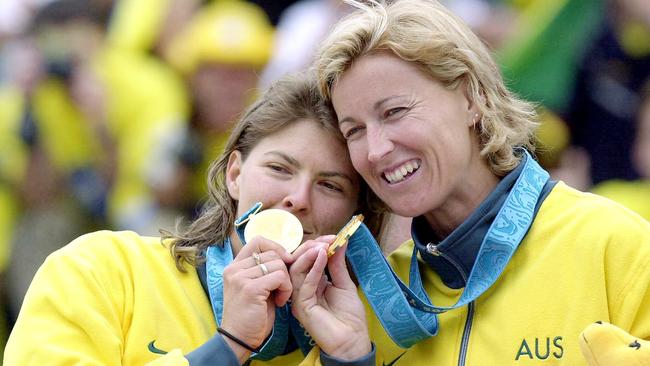
Ms Palaszczuk has departed, three years have passed and there’s fear we won’t seize this opportunity.
How does this gold medallist believe Brisbane can deliver a successful Games?
“We have to get shit done,” she said.
“We need the international visitor to have a good time, have a great experience and want to come back and our athletes need to have the best games ever – they need to win.”
Outside the Boatshed a punter stops Cook with the same “where do I know you from” line she’s heard many times before.
With her trademark warmth she enlightens him and then bounds off to her next engagement maintaining the same energy she started the day with.
Cook ranks her filet mignon, steamed vegetables and chips eight from 10.
Eager to continue our chat about athlete welfare, Cook’s already planning our next lunch at Black Hide.
Hayden’s rating: 7/10


